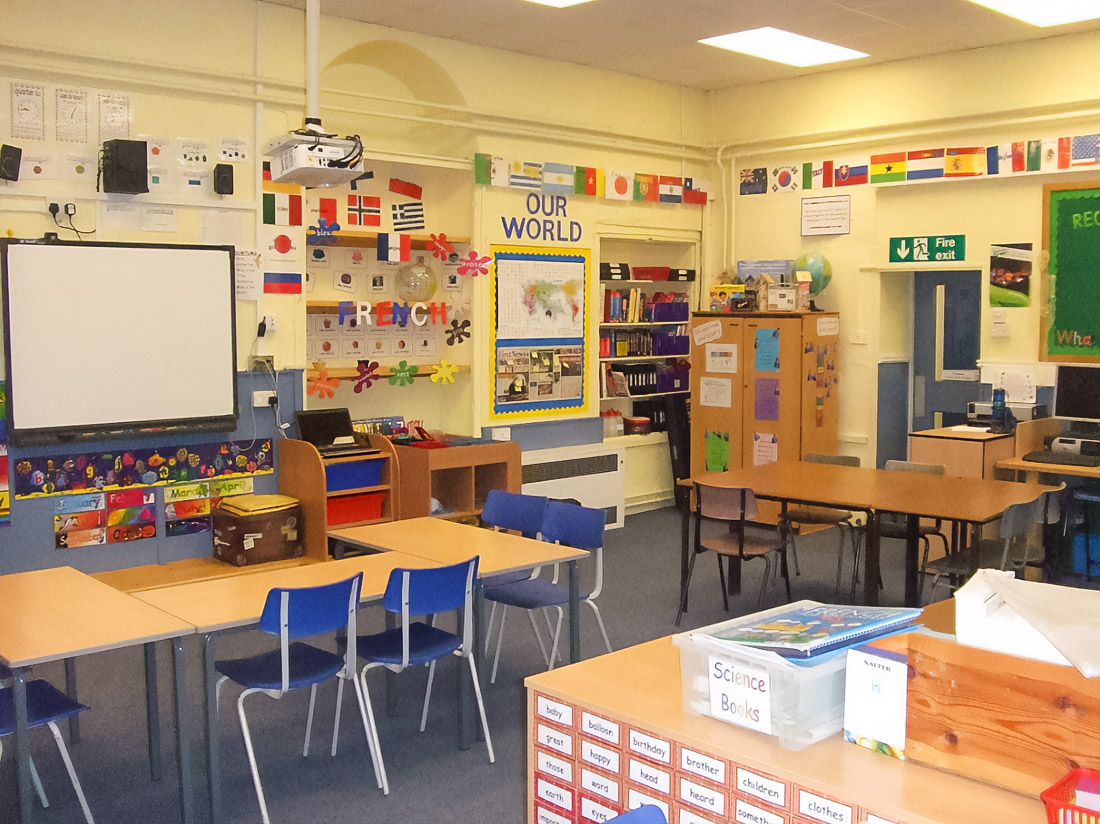Innovative Strategies: Technologies Penetrating in English Private Schools
For the last 20 years, educational institutions in the United Kingdom have undergone significant changes thanks to the implementation of advanced technologies. Interactive boards, tablets, and laptops have already become part of everyday educational practice in more than 75% of private schools. These devices not only make studying more engaging but also allow students to achieve better academic results. In this respect, KG schools in Ajman also follow modern trends, integrating technologies into the educational process.
Transformation of educational classes through technologies
Interactive boards replaced traditional tools of education. They offer teachers the opportunity to show multimedia materials, which increases the engagement of students by more than 40%. This allows the use of dynamic methods of studying, which is especially effective in studying subjects such as mathematics, physics, and history, where visual elements play a crucial role. A notable example is – the use of interactive boards in Eldwick Primary School, where results of tests on mathematics improved by 30% after their implementation.
Innovative educational platforms: online-studying and community

Platforms, such as Google Classroom and Microsoft Teams, find wide applications, ensuring interaction between students and teachers in real-time mode. They give students the opportunity to get access to educational materials 24/7. According to research, more than 83% of students note easing in preparation of homework thanks to such platforms. Learn more about Google Classroom can on Wikipedia.
Case of successful adaptation of educational technologies
King’s College School in Wimbledon is an exemplary example. School integrated technologies in all subjects, thanks to the fact that the average mark of graduates increased by 20% in the last 5 years. Here, actively applied courses on programming and robotics allow students to develop the analytical and technical skills that are demanded in the 21st century.
Problems of implementation of technologies and their potential solutions

Even the newest technologies are not deprived of difficulties during implementation. The main obstacle remains the high cost of equipment and its maintenance, which is capable of reaching hundreds of thousands of pounds. Solutions are possible through the attraction of sponsors and participation in governmental grants. For example, the initiative STEM Learning UK supports many schools, covering up to 50% of the cost of equipment. Additional information about STEM Learning UK can be found on Wikipedia.
Solution of the problem of preparation of teachers
Regular courses of improvement of qualification become the norm. More than 60% of teachers in private schools underwent training on the use of modern educational technologies in the year 2022, which allowed an increase in the quality of teaching and retained the interest of students at a high level.
Personalized education: How technologies change approaches to education

Personalization of the process of education becomes more and more accessible thanks to the analysis of data and artificial intelligence. Platforms offer individual trajectories of studying, which allows 90% of students to study with more efficiency and receive materials adapted to personal interests and level of knowledge. Additional information about artificial intelligence can be found on Britannica.
Future of educational technologies
English private schools continue to invest in the development of technologies, opening new horizons. In the near future, systems of augmented and virtual reality will be able to change the perception of subjects such as biology, history, and astronomy, ensuring the full effect of immersion and increasing memorization of material by 50%.
In the final analysis, high investments in the technological infrastructure of private schools will have a long-term positive influence, contributing to the preparation of students for life in a world where technologies act as the most important component.

I am an award-winning freelance writer who specializes in finance topics. With over ten years of experience.
